‘Military coup of gargantuan proportion’: Israelis react to death of Hassan Nasrallah
The assassination of Hassan Nasrallah has been described as a military feat ‘of gargantuan proportion’, up-ending Iran’s so-called axis of resistance.
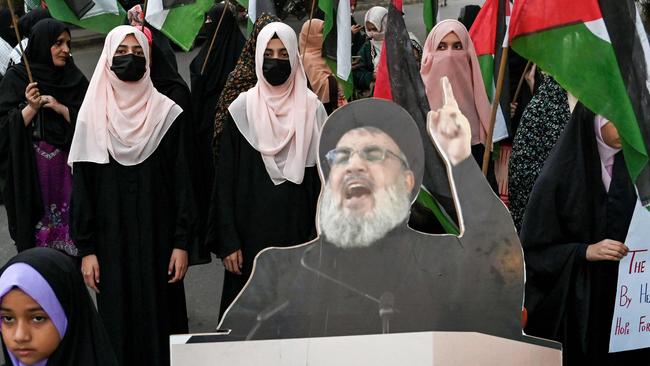
The assassination of Hezbollah leader Hassan Nasrallah has been described as a “military coup of gargantuan proportion”, with academics declaring his death a “Middle Eastern earthquake”.
Daniel Sobelman, assistant professor of International Relations at the Hebrew University of Jerusalem, said that while the terrorist organisation would struggle to recover, its remaining forces could still inflict a lot of damage, especially in Israel’s north.
“This is going to reconfigure the balance of power in the Middle East and really reshapes Israel’s strategic environment. It’s going to send shockwaves that are going to really affect in a very formative way Iran’s threat perception and Iran’s calculations,” he said.
Early Sunday evening, around 24 hours after Nasrallah’s assassination, air raid sirens sounded across Tel Aviv with Houthis claiming they fired a missile toward Ben Gurion Airport as prime minister Benjamin Netanyahu landed from New York.
Sirens have been blaring across northern Israel multiple times since his assassination and just after 10pm local time sirens sounded in Jerusalem following a rocket launch from Lebanon.
“For the most part their strategic capabilities have suffered a devastating blow,” Dr Sobelman said. “Nothing that has happened over the past two or three weeks could anyone imagine. This is really something that is astonishing, it’s incredible.”
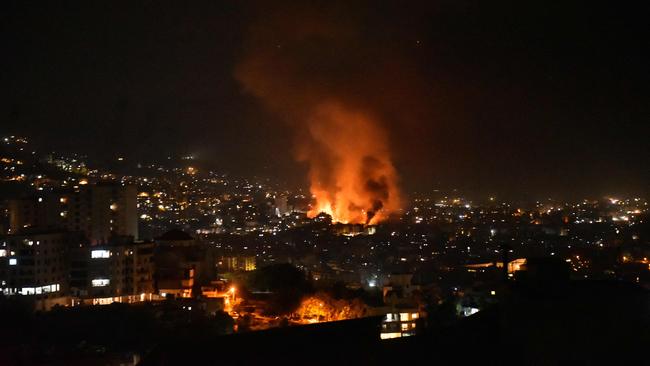
Dr Sobelman said he didn’t know what impact the assassination would have on the remaining hostages in Gaza, but Israel should use this opportunity to find an “exit strategy” in Gaza and Lebanon.
“Nasrallah was a kind of larger than life figure, both domestically and on a regional level, both as a very charismatic leader, a brilliant orator. He became the main explainer of the whole resistance idea and resistance agenda, not just in Lebanon, but in the entire Middle East, and he brought the organisation from basically a small militia into a regional actor 30 years later,” he said.
“He brought Hezbollah a very long way in terms of Hezbollah’s strategic clout, both within Lebanon and I would say over the past 15 years into a regional player, able to both project power, deter Israel, and become a regional strategic laboratory.”
Professor Kobi Michael, a senior research fellow at the Institute for National Security Studies in Tel Aviv, and a visiting professor at The International Centre for Policing and Security at the University of South Wales said Hezbollah had been harmed in such a severe manner it almost didn’t exist any more.
“Once Hezbollah is paralysed the whole Iranian axis of resistance is paralysed,’’ he said.
“After a very impressive set of operations in the past two weeks, Israel has shown to Hezbollah and Iran and the region, it has the capacities and capabilities to harm its adversaries.
“Israel has succeeded in dismantling the military and government capabilities of Hezbollah, but it doesn’t mean they disappear, but these two players are not as effective and efficient like they used to be.”
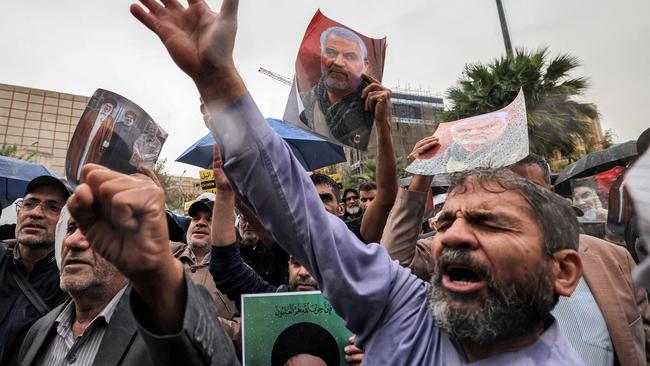
But Prof Michael said the most crucial development has been Israel’s up-ending and undermining of Iran’s axis of resistance, using proxies like Hamas and Hezbollah to encircle and threaten Israel.
“This is very significant, it is the essential achievement and eventually will be the game changer in the entire region,’’ he said, noting that Iran was now more vulnerable.
“Iran is caught in a dilemma: the only way to save strategic assets is to take direct control and they don’t like to sacrifice their own soldiers; they know it’s risky to deal with Israel.
“Israel will retaliate if Iran attacks and this time the retaliation will be much more severe. In addition they remember there is still a United States presence in the area. If they provoke Israel and Israel retaliates aggressively, a regional war escalates, and they will have to face direct confrontation with the Americans. ”
Prof Michael said the recalibrated balance of power in the region was not just benefiting Israel, but the entire world. He said the “bizarre alliances” of progressive elements of western elites with the most radical and violent form of Islam would have been further encouraged in the streets of European countries if Israel had lost against Hamas and Hezbollah.
“This time the rules of the game have changed and it has created new opportunities for new regional architecture to enable a change in the balance of power in the region,’’ he said.
“Any positive change in the region will project directly on the entire international order.”
Prof Michael said Israel had to “mow the grass on a constant basis” – keeping a close eye on its neighbours military and intelligence abilities – as well as weakening the Iranian axis, to ensure Israeli security.
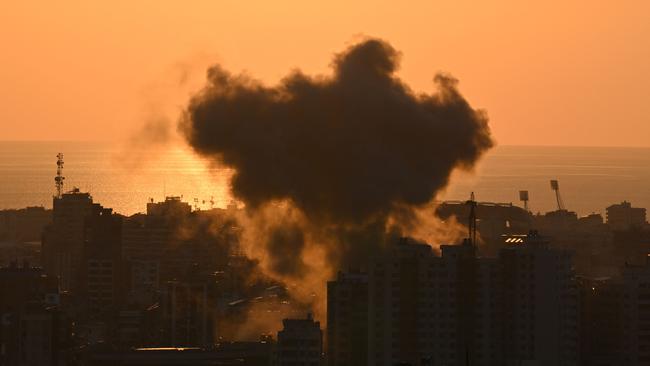
Dr Sobelman said Hezbollah second in command Hashim Safi Al Din – who is Nasrallah’s cousin – could be a possible successor, a move that had been in the pipeline for over a decade.
“But he’s not going to be able to fill Nasrallah’s shoes anytime soon. First of all he’s always been a political figure, less involved in the military aspects. He’s less charismatic than Nasrallah, and Nasrallah’s been there for 32 years, so just imagine how long it would take to fill in those shoes.”
Dr Sobelman said Nasrallah’s death had changed the narrative following the October 7 attacks.
“October 7 enabled Israel’s enemies to the conclusion that destroying Israel, liberating Palestine, the way they put it, was achievable,” he said.
“The danger was extremely grave, severe and far reaching on October 7 … I think from an Israeli point of view, it’s extremely important that strategically, the access to this ring of fire that the Iranians have established … then all these recent achievements, albeit they came at a huge cost for Israel but from a strategic point of view, this is arguably the most important thing to disabuse Israel’s enemies of the notion that Israel could be defeated.”


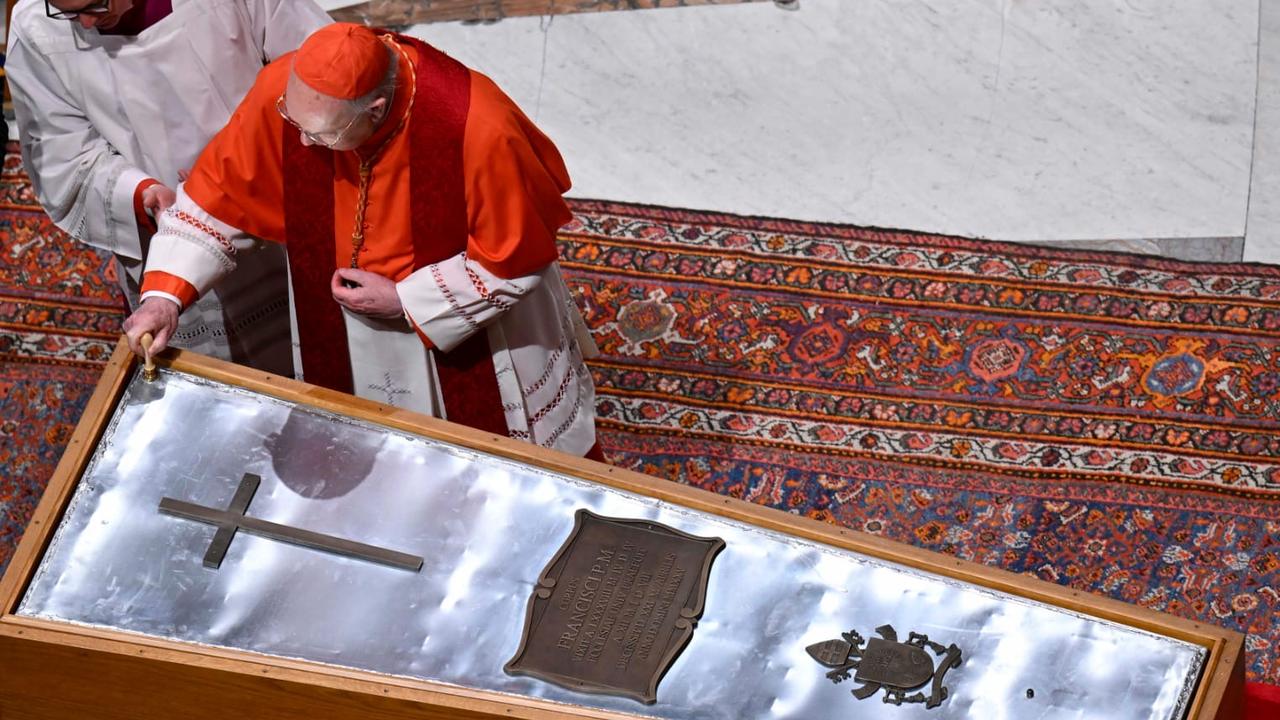
To join the conversation, please log in. Don't have an account? Register
Join the conversation, you are commenting as Logout